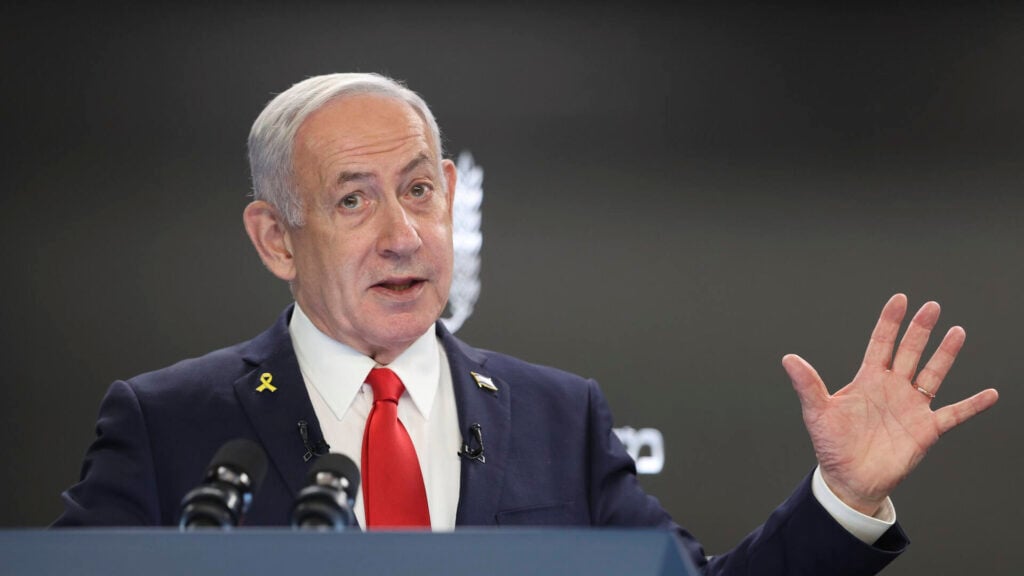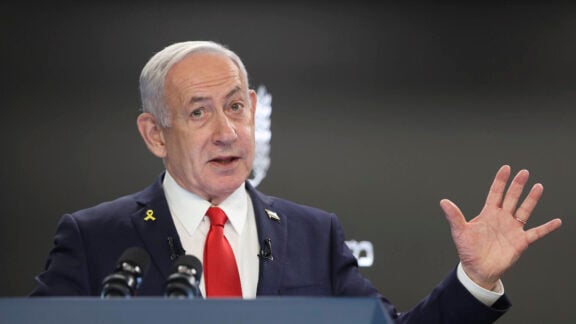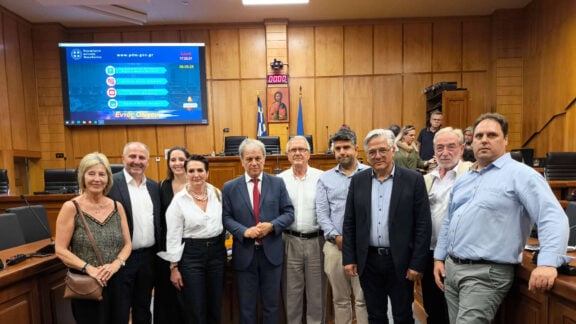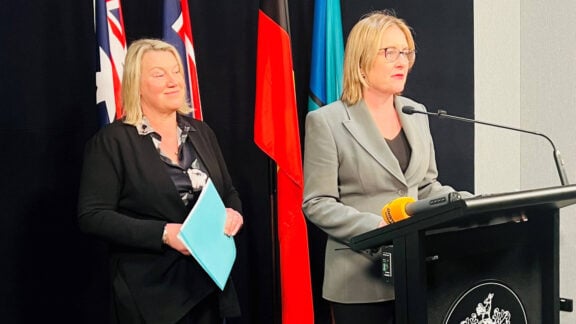Sections of the Armenian, Assyrian, and Greek communities across the globe have greeted Benjamin Netanyahu’s recent acknowledgment of the genocides of their peoples with jubilation. His words, spoken during an interview with Patrick Bet-David, were invested by sections of the Greek media especially, with the aura of long-sought vindication. After decades of silence, here was an Israeli prime minister affirming aloud what entire diasporas have struggled to bring into the realm of international recognition. Yet the rejoicing, while understandable, is perhaps premature. For all their symbolic force, Netanyahu’s impromptu comments remain a personal gesture. They do not constitute a change in Israel’s official policy, which remains cautious and unresolved.
The context of the remarks matter. They were delivered in response to an unexpected question, without the solemnity of a formal declaration, and without the authority of a parliamentary resolution. There was no cabinet deliberation, no act of legislation, and no motion before the Knesset. The distinction between individual speech and institutional recognition is profound, for genocide recognition is not a private matter. It is a public act of state that affirms history, acknowledges victims, and defines collective memory. Until the institutions of government have spoken, the recognition of which Netanyahu spoke retains the force of nothing more than personal opinion.
This distinction between person and office, or person and state is a pertinent one, with the Australian experience offers useful parallels. Bob Carr, as premier of New South Wales, Bob Carr as premier of New South Wales, led his government to a unanimous recognition of the Armenian Genocide in 1997. As foreign minister of the Commonwealth, however, he refrained from doing so, stating: “As a Government we don’t take a stand on this historic dispute.” Scott Morrison, as Opposition Leader, was equally forthright in acknowledgment. In 2011, he called for Federal recognition of the Genocide and acknowledged the outpouring of Australian support for victims of the Armenian Genocide as the country’s first international humanitarian relief effort, going as far as referring to it as “one of the greatest crimes in modern history.” Yet as prime minister, he fell silent, preferring to maintain ambiguity. Similarly, in May 2022, just prior to becoming Prime Minister, Anthony Albanese called upon the Ottoman Empire’s successor state to “come to terms with its history.” Three years later no recognition has been forthcoming. In each case, the convictions of the individual were no doubt sincere. Ultimately though, they were tempered by the perceived responsibilities of the office. Netanyahu’s statement belongs in the same category. It reflects the voice of a man, not the policy of a state.
To date, Israel’s reticence to recognise the Armenian, Assyrian, and Greek genocides has been consistent. The reasoning has been strategic rather than moral. Successive governments have concluded that recognition would compromise delicate relationships with Turkey and Azerbaijan, both of which are vital to Israel’s regional calculations. During the Cold War, Turkey was Israel’s sole Muslim-majority partner, providing both diplomatic recognition and military cooperation. Acknowledging the Armenian genocide would have placed this partnership in jeopardy, given that Ankara has long made denial of the genocide integral to its national identity. The pattern continued even after relations soured, for the prospect of alienating Azerbaijan became an additional constraint.
The Turkish dimension has long been the most sensitive. Turkey’s recognition of Israel in 1949 made it the first Muslim-majority state to do so. Over decades, the partnership deepened, culminating in extensive military and intelligence cooperation in the 1990s. The rise of the Justice and Development Party under Recep Tayyip Erdoğan transformed the relationship. Erdoğan cast himself as a defender of Palestinian causes and a sharp critic of Israeli policy. Relations grew increasingly bitter, reaching their nadir after the Mavi Marmara incident in 2010, when Turkish activists were killed in clashes with Israeli forces. Since then, the relationship has oscillated between hostility and tentative rapprochement, but the warmth of earlier decades has not returned. Netanyahu’s sudden reference to the genocides of Armenians, Assyrians, and Greeks must be seen against this background. It carries the flavour less of moral awakening than of deliberate rebuke. Such instrumentalisation is troubling, for when recognition is deployed as a diplomatic weapon it risks being stripped of its moral gravity.
The Azerbaijani relationship adds another layer of complexity. Since the collapse of the Soviet Union, Israel has cultivated a close partnership with Baku. Azerbaijan provides nearly forty percent of Israel’s oil, delivered through the Baku-Tbilisi-Ceyhan pipeline. In exchange, Israel has become one of Azerbaijan’s most significant arms suppliers, delivering drones, missile systems, and other advanced weaponry. The proximity of Azerbaijan to Iran and its willingness to cooperate with Israel in intelligence matters have made this partnership invaluable. Yet recognition of the Armenian genocide would place Israel in direct conflict with Baku’s national narrative. For Azerbaijan, locked in a bitter conflict with Armenia over Nagorno-Karabakh, any acknowledgment of Armenian historical claims undermines its own sense of legitimacy. Netanyahu is acutely aware of this. To transform his words into binding policy would imperil a strategic relationship that Israel regards as vital for energy security and as a counterweight to Iran.
Theories of international relations help to illuminate the complexity of Israel’s position. Realist analysis suggests that states act above all to preserve their security, and from this perspective recognition of the Armenian, Assyrian, and Greek genocides could imperil valuable partnerships. Constructivist approaches, however, remind us that national identity and historical memory influence policy no less than strategic interests. Turkey’s sense of self remains tied to denial, Armenia’s to remembrance, Azerbaijan’s to a counter-narrative of survival, while Israel’s identity is profoundly bound to the Shoah. For a state whose very being is shaped by the memory of atrocity, hesitation to extend recognition to other genocides creates a tension that is felt acutely. Netanyahu’s words may be read as a spontaneous expression of this tension. As the leader of a people marked by the Holocaust, he is drawn towards acknowledgment of what history and scholarship affirm. As the head of government, he must weigh this moral instinct against the imperatives of alliances and regional stability. His statement thus reflects less a contradiction than the inevitable strain of governing a state whose ethical commitments and strategic necessities are often in delicate balance.
For Jewish communities abroad, the matter resonates deeply. Denial of genocide strikes at the heart of their own historical experience. In Australia, Jewish leaders have consistently supported Armenian, Assyrian, and Greek campaigns for recognition, and scholars such as the late Colin Tatz, whose pioneering work on genocide studies placed Australia at the forefront of comparative research, have ensured that these histories are neither ignored nor diminished. Internationally, figures like Yehuda Bauer, one of the most authoritative historians of the Shoah, and Marc David Baer, whose work has revealed the intricate legacies of Ottoman and Turkish history, have contributed substantially to advancing awareness and understanding. The Holocaust Museum in Melbourne includes a display on the Armenian genocide, affirming that the memory of the Shoah compels solidarity with other victims of extermination. For Jewish communities, recognition is not an option but a moral and ethical imperative, and the support they have extended to the descendants of Armenians, Assyrians, and Greeks in their campaigns for justice remains a source of profound gratitude.
The communities celebrating Netanyahu’s words must therefore take care not to mistake gesture for policy. Genocide recognition, if it is to be worthy of the name, must be enacted formally through the institutions of state. It requires deliberation by parliament, a vote, and an act that cannot be dismissed as rhetorical flourish. Until such a step is taken, words, however powerful, remain transient. They can be retracted by successors, ignored by ministries, and dismissed by foreign policy officials. Recognition delivered in parliament, by contrast, endures.
Thus while the rejoicing of Armenians, Assyrians, and Greeks at Netanyahu’s remarks is understandable, such acknowledgments remain fragile when spoken without institutional backing. Recognition of genocide cannot rest on improvisation. It requires the authority of Israel’s institutions and the solemnity of deliberate decision.
To legislate such recognition would affirm that truth is stronger than denial and that the defence of memory transcends the suffering of any one people. It would be a moment when political calculation yields to moral clarity, and Israel, in full possession of its history, affirms the indivisibility of justice. Until then, words remain provisional. When that act arrives, recognition will endure as a testament that remembrance unites peoples across time and redeems history through truth.









